Physics
Sign up for our newsletter
We summarize the week's scientific breakthroughs every Thursday.
-
 Quantum Physics
Quantum PhysicsQuantum choice can be counterproductive
In a puzzling paradox, delivering quantum messages becomes more difficult if the intended recipient offers the sender multiple options for the time and place of delivery.
By Andrew Grant -
 Particle Physics
Particle PhysicsWilliam Detmold: Looking deep into atoms’ hearts
MIT theoretical physicist William Detmold probes the fundamental bits of matter that combine to form the nuclei of atoms.
By Andrew Grant -
 Quantum Physics
Quantum PhysicsShinsei Ryu: Error-free quantum calculations
Physicist Shinsei Ryu navigates the confusing border between the quantum and everyday realms.
-
 Particle Physics
Particle PhysicsMap captures Earth’s antineutrino glow
Tiny subatomic particles called antineutrinos stream away from Earth at different concentrations across the globe, a new map illustrates.
By Meghan Rosen -
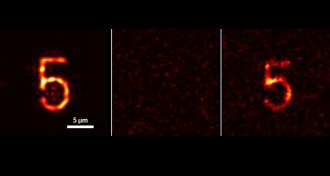 Physics
PhysicsRaw chicken, ingenuity make a time-reversal mirror
A new phase-conjugation mirror sends light waves back where they came from, allowing physicists to reconstruct images even if the original light was severely scrambled.
By Andrew Grant -
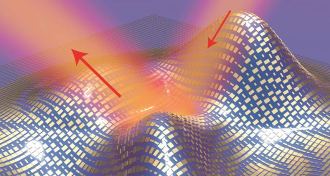 Physics
PhysicsInvisibility cloaks slim down
An ultrathin invisibility cloak called a skin cloak offers more stealth in a thinner package.
By Andrew Grant -
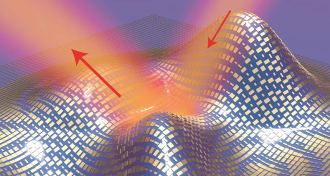 Materials Science
Materials ScienceInvisibility cloaks slim down
A new invisibility cloak offers more stealth in a thinner package.
By Andrew Grant -
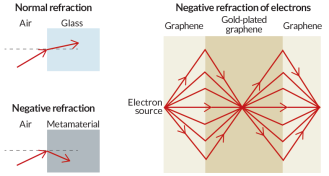 Materials Science
Materials ScienceElectron waves refract negatively
Waves of electrons have been bent backward in a sheet of graphene, allowing physicists to focus electrons the way a lens focuses light.
By Andrew Grant -
 Physics
PhysicsNobel laureate finds beauty in science and science in beauty
In ‘A Beautiful Question,’ Frank Wilczek explores links between math and art
-
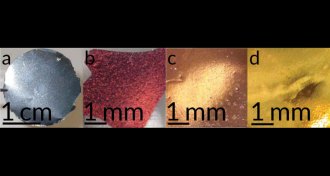 Materials Science
Materials ScienceGraphene shows signs of superconductivity
Ultrathin sheets of carbon can conduct electrical current with no resistance at low temperatures.
By Andrew Grant -
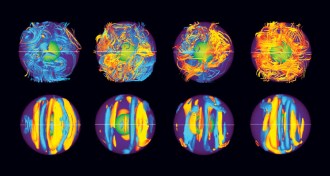 Earth
EarthThe magnetic mystery at the center of the Earth
The history of the planet’s all-important magnetic field has scientists ramping up simulations and lab experiments to resolve a baffling paradox.
-
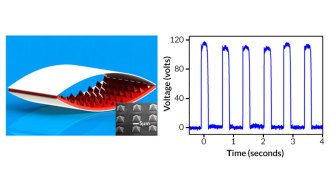 Materials Science
Materials ScienceNanogenerators harvest body’s energy to power devices
Nanogenerators offer body-harvested energy to fuel bionic future
By Beth Mole